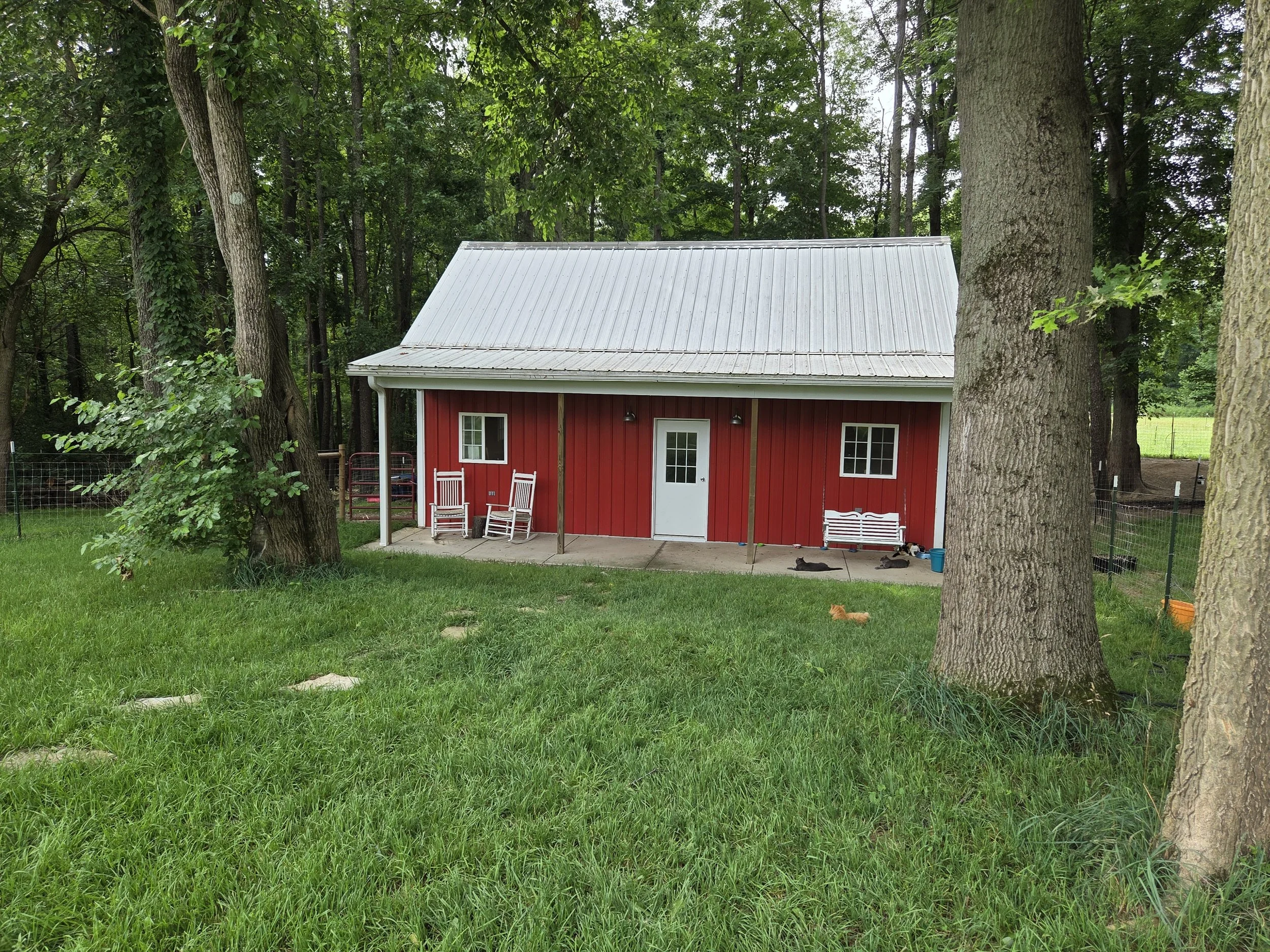Who we are
Welcome to the Bosch Farm & Fiber site. We dedicate this page to all those interested in our farming and fiber adventures.
History and Focus
Our farm was established in 2014 when we got baby chicks and a small chicken coop from a local farm store. We grew our farm with barn cats and rabbits eventually. Next we added three Nigerian Dwarf goats and then three Huacaya alpacas. Our livestock guardian dog, Ellie, is a Great Pyrenes and joined the farm soon after.
Most recently we replaced the goats with three F2 Valais Blacknose sheep which means they are 75% Valais. We are hopeful to breed these sheep and slowly make our way to pure bred Valais. If you aren't familiar with that breed of sheep, they are the cutest sheep in the world! We plan to have lambs born each spring so stay tuned.
We chose to focus our farm on Valais Blacknose sheep since they are relatively rare worldwide (estimated at only 20,000), so they are highly valuable. They were first imported to the U.S. in 2018, producing the first F1 lambs (50% Valais). Many hobby farmers like us developed breed up programs with their ewes, using purebred Valais sires to reach higher percentages of Valais in their offspring: F2 (75%), F3 (87%), F4 (94%), F5 (97%). F5 offspring are considered purebred in the U.S. and have often been sold for around $20,000.
Also on our little farm, we have started to work with the animal’s fiber - slowly learning how to spin yarn and weave rugs.
Animal Health
Our farm is run by us, a husband and wife team - Nate and Amanda. Amanda keeps all the animal records, completes the health checks, gives shots and vitamin supplements, optimizes grain feeding at certain times, and assists with Valais Blacknose lamb deliveries. She is a registered nurse at the local community hospital, and she has adapted her nursing skills to her animal patients on the farm. Nate manages the manure and the pasture rotations to keep parasite levels down and animal health up. He is an environmental science professor and has enjoyed applying his knowledge of interactions between plants and animals in the farm setting.
We both feed the animals a mix of grass hay bales and fresh pasture grasses and flowers. We do regular parasite fecal egg counts and FAMACHA scoring to ensure animal health along with vet visits when needed. Our Valais Blacknose sheep all have CDT shots given with a booster. We had testing done last year and sheep tested negative for OPP, CL, and Johne's.
Farm Setup
We have a barn with an animal area inside (10’x30’) and covered area outside (10’x30’) as well as an attached dry lot area. The dry lot is shaded and has a constant supply of water. Off the dry lot, there are four rotational pastures that range in size from 0.2 to 0.5 acres and have a total of 1.4 acres. The pastures are each subdivided into paddocks such that there are 10 rotational pasture areas in all allowing intensive rotational grazing. This minimizes parasite problems, maximizes soil health, and enhances the quality of forage in the pastures because it allows good regrowth and cuts down on weeds. Animals always have access to the dry lot for shade and water from whatever rotational area they are in.
Pasture fencing is 48” high with knotted 4“x4” mesh stretched between 4” cross-braced wood posts at each corner with metal T posts spaced every 8’ between corners. There is also an electrified high tensile wire about 6” above the top of the fence. Pastures are subdivided into paddocks by 3 strands of polywire electric fence with T posts spaced every 30’.
The pastures have a mix of tall fescue, birdsfoot trefoil, chicory, orchardgrass, Kentucky bluegrass, and white clover which seems perfect for our Valais Blacknose sheep. We have also added annual ryegrass a couple of years in the late summer to help as an edible cover crop into the winter as well as to reduce soil compaction.
The adventure continues…
Contact us
Interested in working together? Fill out some info and we will be in touch shortly. We can’t wait to hear from you!


